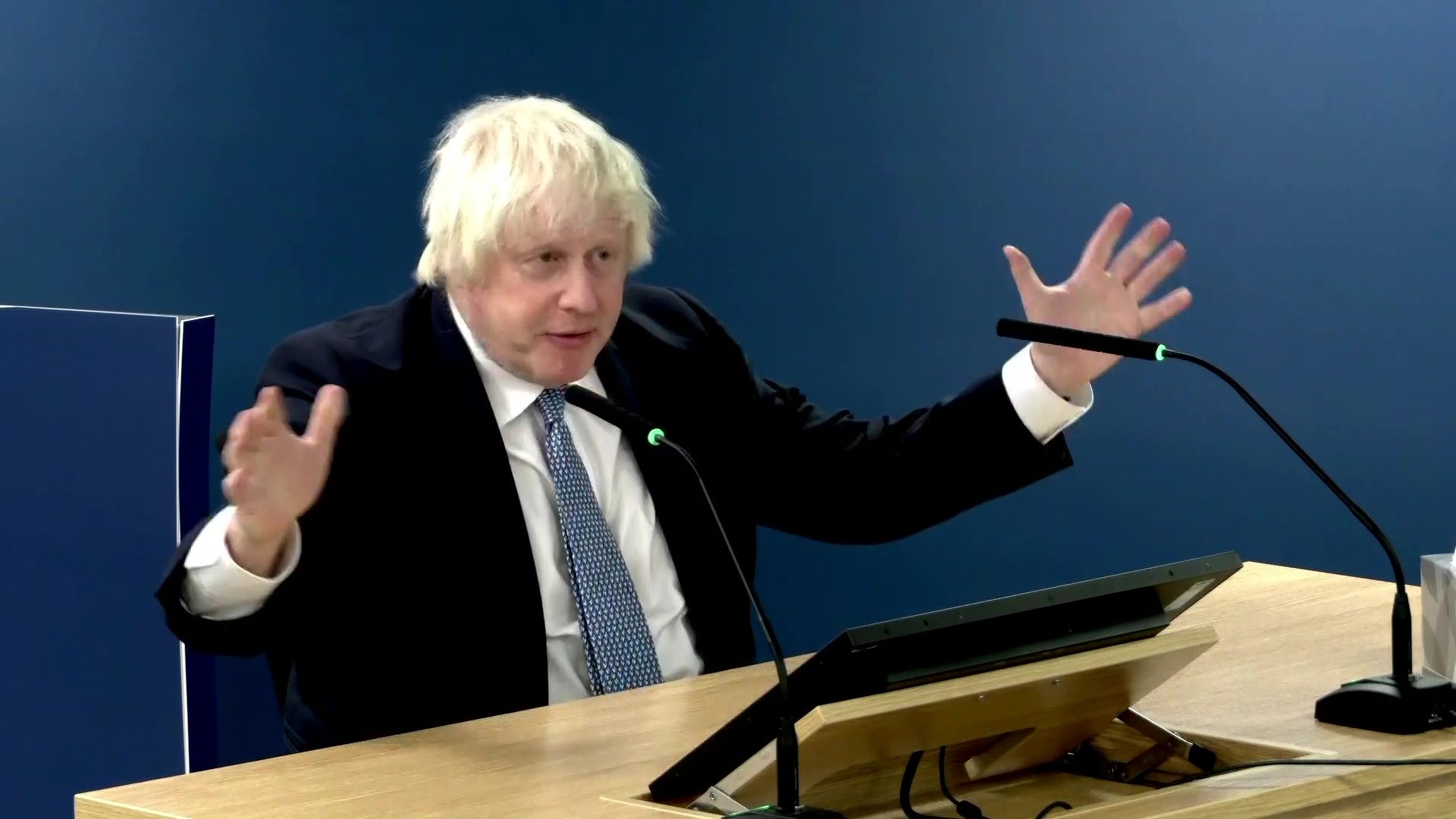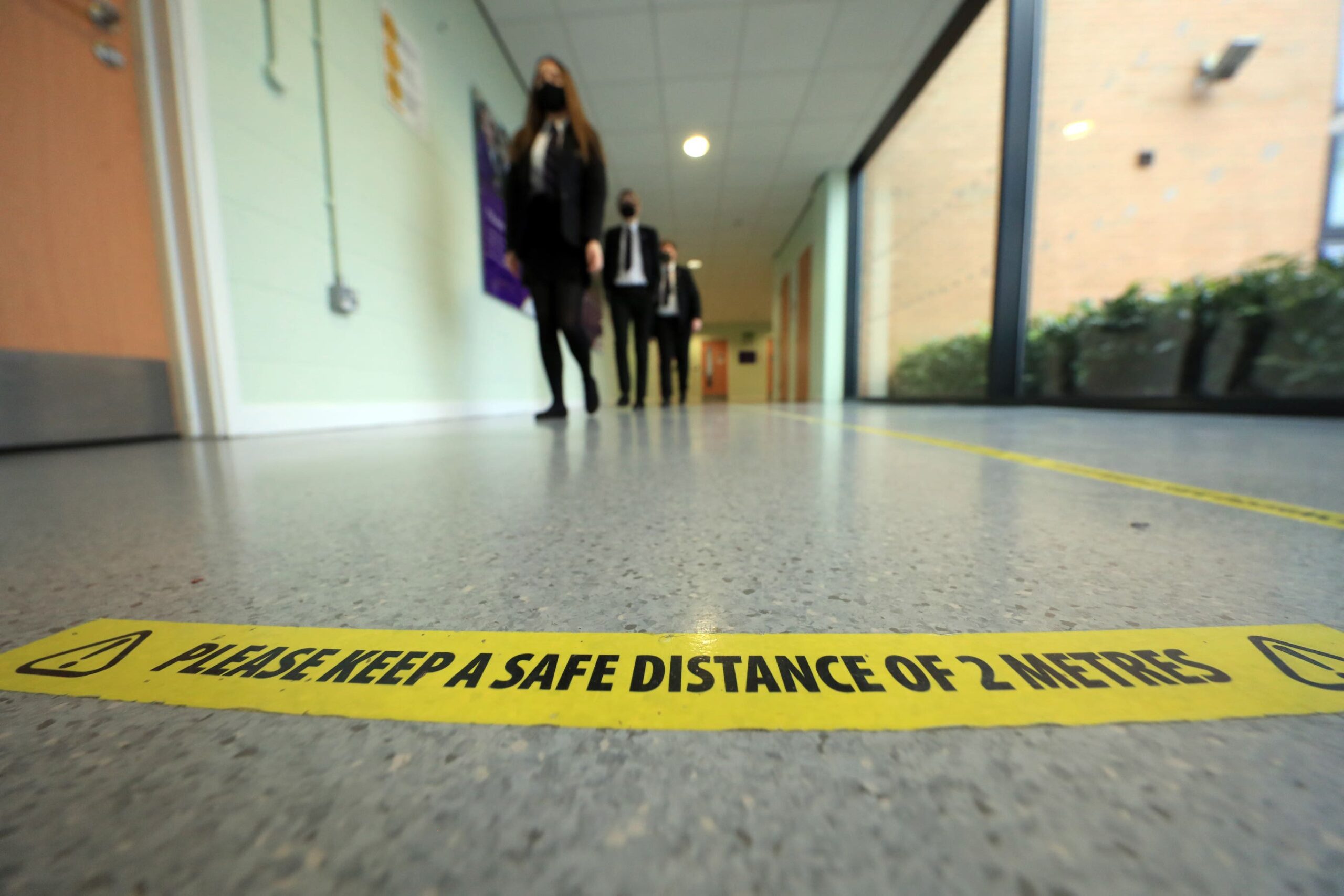Boris Johnson has admitted the system his government implemented to award exam grades to pupils who had not sat assessments “plainly let down a lot of kids”, after many children’s results during the pandemic did not reflect their abilities.
The former prime minister said the widely-criticised system, established during the pandemic when pupils across the country had their education disrupted for months, is one of the things he “very much regrets”.
Appearing before the Covid-19 inquiry, Mr Johnson was asked about the system which saw GCSE pupils receive predicted grades instead of exam results.

Criticism of the system includes that private schools gave out more generous grades during the pandemic than state schools, while some students faced discrimination in their predicted grades.
“I was not expert enough to comment on whether it was viable or not, but plainly, it let down a lot of kids whose grades did not reflect their abilities and their achievements,” Mr Johnson told the inquiry.
He said the fiaso left him in a “homicidal mood” in a WhatsApp message to his former chief adviser Dominic Cummings shown to the inquiry.
Mr Johnson said at the time he was “back in chequers and in a thoroughly homicidal mood”.
He said: “We need a plan for the dept of education. We need a perm sec and we need better ministers and quite frankly we need an agenda of reform. We can’t go on like this. I am thinking of going into number ten and firing people.”
But, pressed on the implementation of the system, an irate Mr Johnson said: “All I would say is… you try coming up with a system to come up with a fair exam result for people when they can’t sit exams.
“It’s not easy… okay?”
He went on to insist shutting schools during the pandemic was a “nightmare idea” which he wanted to avoid at all costs.
The ex-PM said he “had a personal horror” over the idea, fearing the impact of shuttered classrooms on the least well off.
Mr Johnson was shown a document drawn up by the Department for Education in March 2020, warning that closures would mean almost 9 million pupils could not be guaranteed an education.
The document warned that 1.3 million of the poorest children would not receive a free school meal while remote learning would fail many kids. It also warned that the most vulnerable children are much safer in school, and that school closures would put many at risk of domestic violence or youth crime.
“I had a personal horror of closing schools, I thought it was a nightmare thing to do and I thought it would do a lot of damage to people who would find it the most difficult to bounce back and cope,” Mr Johnson told the inquiry.

Mr Johnson also denied the government had failed to prepare for school closures, saying discussions had been taking place since the pandemic emerged.
Last week, former education secretary Sir Gavin Williamson told the inquiry he had not asked DfE officials to prepare an assessment on the impact of school closures in early 2020, as the advice at the time “was not recommending closures” and Number 10 had not commissioned it.
In his written evidence, Sir Gavin described a “discombobulating 24-hour sea-change” from keeping schools open on March 16 to talking about closing them on March 17, and an announcement to shut them made the following day.
On Tuesday, Mr Johnson insisted work had been done to plan for school closures, saying: “If you look at the sequence from February onwards, it’s clear that Sage (the Scientific Advisory Group for Emergencies) is talking about the possibility, the Cabinet is discussing it in March.
“Certainly I remember the subject coming up repeatedly.” And he praised Sir Gavin’s efforts as education secretary, adding: “I think that, on the whole, given the difficulties that we faced, that the department under Gavin did a pretty heroic job in in trying to cope with with covid.”
Mr Johnson added he had received a note from the DfE on March 15 asking for a meeting on the subject “in which they go over all kinds of stuff that are going to be necessary to enact school closures”, including safeguarding, exams and teacher training.
He added he would not have expected the DfE to wait for an instruction from Number 10 before planning for closures and he was “surprised that the permanent secretary at the DfE didn’t feel that it was necessary to look at what contingency arrangements we had”.
He said: “I just think that it was obvious that there had to be consideration of closing schools.
“I was very much hoping that we wouldn’t have to close schools. I thought it was a nightmare idea.”
Asked if he accepts that until March 2020 there had not been a cross-government focus on schools, Mr Johnson said: “No, I don’t really accept that.”
He added: “I think there had already been conversations about the possibility of closing schools. And it looked to me as though the DfE was preparing for that.”
But Mr Johnson acknowledged that the “full horror” of the pandemic was “slow to dawn on the government”.
“Don’t forget, we didn’t know the effect this disease had on kids. We didn’t know much about the transmissibility of the disease. There were all sorts of things that were simply unknown and difficult to plan for,” he said.
